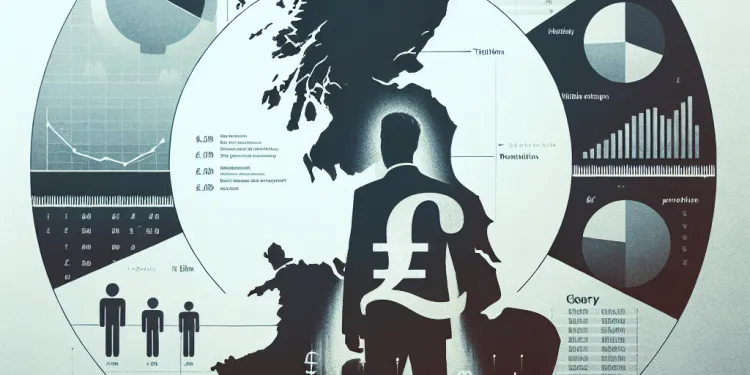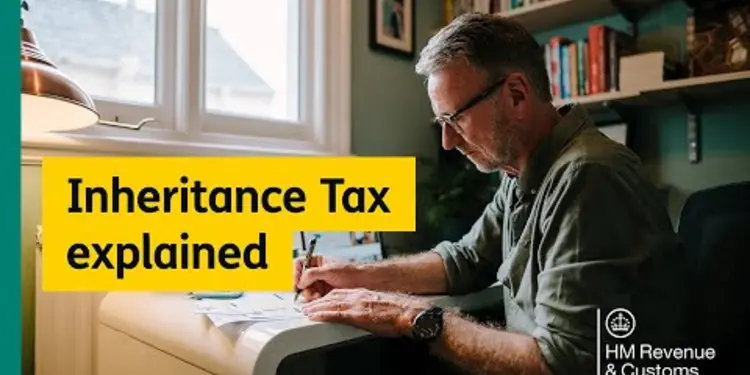
Find Help
More Items From Ergsy search
-

What are the administrative costs of a wealth tax?
Relevance: 100%
-

What is the Wealth Tax in the UK?
Relevance: 64%
-

Why doesn't the UK have a wealth tax?
Relevance: 60%
-

How do economists view the impact of wealth taxes?
Relevance: 59%
-

What is the wealth tax in the UK?
Relevance: 59%
-

What are the challenges of implementing a wealth tax?
Relevance: 58%
-

Could a wealth tax affect economic growth in the UK?
Relevance: 57%
-

Could a wealth tax encourage tax avoidance?
Relevance: 57%
-

Can a wealth tax be levied annually?
Relevance: 56%
-

Would a wealth tax replace other taxes in the UK?
Relevance: 55%
-

How does a wealth tax differ from an income tax?
Relevance: 54%
-

How do other countries implement a wealth tax?
Relevance: 54%
-

Can a wealth tax impact economic behavior?
Relevance: 53%
-

Are there any countries currently implementing a wealth tax?
Relevance: 53%
-

What is a Wealth Tax?
Relevance: 53%
-

How might a wealth tax impact inequality in the UK?
Relevance: 53%
-

Has the UK ever had a wealth tax?
Relevance: 52%
-

How might a wealth tax affect wealthy individuals?
Relevance: 52%
-

What is the objective of a wealth tax?
Relevance: 51%
-

What arguments are made for a wealth tax in the UK?
Relevance: 50%
-

What are common arguments in favor of a wealth tax?
Relevance: 50%
-

How is a wealth tax typically calculated?
Relevance: 49%
-

Who is typically subject to a wealth tax?
Relevance: 49%
-

Has any political party in the UK supported a wealth tax?
Relevance: 47%
-

Is real estate included in wealth tax calculations?
Relevance: 47%
-

Would a wealth tax apply to foreign assets?
Relevance: 47%
-

How do governments ensure compliance with wealth tax laws?
Relevance: 45%
-

How does council tax relate to wealth in the UK?
Relevance: 43%
-

What are common criticisms of a wealth tax?
Relevance: 42%
-

Are there alternatives to a wealth tax for addressing inequality?
Relevance: 38%
-

What taxes in the UK target wealth?
Relevance: 37%
-

Do wealth taxes differ between countries?
Relevance: 34%
-

Do I need to pay tax on the £500 cost of living payment?
Relevance: 33%
-

What exemptions are commonly associated with wealth taxes?
Relevance: 33%
-

Do public opinion polls support a wealth tax in the UK?
Relevance: 32%
-

What types of assets are typically subject to a wealth tax?
Relevance: 31%
-

What is Inheritance Tax?
Relevance: 30%
-

Has the idea of a wealth tax been discussed in political debates?
Relevance: 30%
-

What is the Small Business Administration (SBA)?
Relevance: 28%
-

Is the £500 cost of living payment taxable?
Relevance: 27%
Introduction to Wealth Tax Administrative Costs
A wealth tax is a levy on the total value of personal assets, including cash, real estate, investments, and other holdings. Administering such a tax involves several costs, from setting up infrastructure to evaluate and collect taxes, personnel expenses, and compliance mechanisms. Understanding these costs is crucial for assessing the feasibility and efficiency of a wealth tax system in the UK.
Setting Up Infrastructure
Implementing a wealth tax requires a robust system capable of handling vast amounts of data concerning individuals' assets. This system must accurately assess the value of diverse asset classes, track changes in asset values, and identify taxpayers subject to the wealth tax. Establishing such infrastructure necessitates significant investment in technology and skilled personnel. It involves developing software systems, integrating with existing tax databases, and ensuring data security to protect sensitive taxpayer information.
Valuation and Appraisal Costs
A critical challenge in administering a wealth tax is valuing the wide variety of assets individuals hold. Accurate valuation is essential to determine tax liabilities; thus, it requires resources to employ or contract professionals with expertise in asset appraisal. Real estate, business ownerships, art, and other valuables need regular, precise valuation, potentially requiring costly valuations from certified experts. This process must be repeated periodically, which adds to ongoing administrative expenses.
Personnel and Training
The administration of a wealth tax would require hiring tax professionals, accountants, and legal advisors knowledgeable about complex asset portfolios. Dedicated personnel are necessary to handle inquiries, process tax returns, and ensure compliance. Additionally, ongoing training programs would be needed to keep staff updated on tax laws and valuation techniques. These human resource costs represent a significant portion of the administrative burden.
Compliance and Enforcement
Ensuring compliance with wealth tax obligations involves substantial administrative effort. This includes monitoring taxpayer declarations, conducting audits, and enforcing penalties for non-compliance. The complexity of asset management and valuation increases the likelihood of disputes, necessitating resources for resolution processes and possibly litigation. The need for regulatory oversight and compliance checks adds to the operational costs of maintaining a fair and effective wealth tax system.
Cost-Benefit Considerations
While the administrative costs of a wealth tax are substantial, they must be weighed against the potential revenue it could generate. Policymakers must consider whether the expected revenue will justify the complexities and expenses involved in administration. The design of the tax, particularly regarding exemptions and thresholds, will significantly influence both revenues and costs. In conclusion, while a wealth tax could contribute to reducing inequality and generating public revenue, its implementation in the UK requires careful consideration of the associated administrative demands and costs.
Introduction to Wealth Tax Administrative Costs
A wealth tax is a tax on everything a person owns, like money, houses, and investments. Running this tax costs money. It includes setting up a system to collect the tax, hiring people, and making sure everyone pays what they should. It is important to know the costs to see if a wealth tax would work well in the UK.
Setting Up Infrastructure
To start a wealth tax, we need a strong computer system. This system will look at how much people’s things are worth, and it will keep track of people who need to pay the tax. Making this system takes a lot of money. We need special software, and it must be safe to protect people's information. We also need skilled people to build and run it.
Valuation and Appraisal Costs
One hard part of a wealth tax is figuring out how much different things are worth, like houses, businesses, and art. This is important to know how much tax someone owes. We need experts to do this, which costs money. They have to check values often, which keeps costing money over time.
Personnel and Training
Running a wealth tax means hiring people who know a lot about taxes. We need tax experts, accountants, and lawyers. They will help answer questions and check the tax returns. It is also important to train these workers to keep them up to date with new rules. Paying for these people and their training is a big part of the cost.
Compliance and Enforcement
Making sure everyone follows the wealth tax rules takes a lot of work. We need to check what people report, do audits, and make sure they pay. Sometimes, there are disagreements about how much things are worth, which takes time and money to sort out. We need rules and checks to keep the tax system fair, but these also add to the costs.
Cost-Benefit Considerations
Running a wealth tax costs a lot, but it can also bring in money. It is important to see if the money it brings in is more than what it costs to run it. The rules about who pays and how much will affect this. In the end, a wealth tax could help by bringing money and reducing inequality, but we must think carefully about how to run it in the UK without it costing too much.
Frequently Asked Questions
What is meant by administrative costs in the context of a wealth tax?
Administrative costs in the context of a wealth tax refer to the expenses incurred by governments to implement, collect, and enforce the tax. This includes costs related to staffing, technology, auditing, and legal processes.
Why are administrative costs a concern for wealth taxes?
Administrative costs are a concern because they can reduce the net revenue generated from the tax. High administrative costs can make the tax inefficient and may require the government to allocate significant resources to ensure compliance and enforcement.
How do administrative costs of a wealth tax compare to other types of taxes?
Wealth taxes typically have higher administrative costs compared to taxes like sales or income taxes. This is because assessing the value of different types of wealth requires more complex evaluation and enforcement mechanisms.
What are some common components of administrative costs in wealth taxes?
Common components include valuation of assets, compliance monitoring, legal expenses related to disputes, staff salaries, and costs related to technology and infrastructure for tracking wealth.
How does asset valuation affect administrative costs of a wealth tax?
Asset valuation is a major driver of administrative costs because it requires regular assessment of diverse and often complex assets such as real estate, stocks, and personal goods to determine their fair market value.
Are there ways to reduce the administrative costs of a wealth tax?
Yes, administrative costs can be reduced through simplified tax structures, technology-driven valuation methods, efficient reporting systems, and collaboration with financial institutions for accurate data.
What role does technology play in managing the administrative costs of a wealth tax?
Technology can help streamline asset valuation, improve data accuracy, automate compliance monitoring, and enhance communication with taxpayers, ultimately reducing administrative burdens.
Can administrative costs impact the effectiveness of a wealth tax?
Yes, if administrative costs are excessively high, they can negate a significant portion of the revenue generated by the tax, reducing its overall effectiveness and public support.
How do enforcement mechanisms contribute to the administrative costs of a wealth tax?
Enforcement mechanisms, such as audits and legal actions against evaders, are costly but necessary aspects of ensuring compliance and integrity of the tax system, therefore contributing to administrative expenses.
What challenges do governments face in managing the administrative costs of a wealth tax?
Challenges include accurately valuing diverse forms of wealth, preventing tax evasion, dealing with legal disputes, and maintaining up-to-date and precise data on taxpayer assets.
Does the complexity of wealth holdings affect administrative costs?
Yes, complex or opaque holdings, such as offshore accounts or valuable collectibles, make asset valuation more difficult and costly, thus increasing administrative expenses.
Are there any case studies on the administrative costs of wealth taxes in other countries?
Yes, countries like France, Switzerland, and Norway have implemented wealth taxes and provide data regarding the administrative sizes, costs, and challenges faced during their implementation.
How does taxpayer compliance influence the administrative costs of a wealth tax?
Higher compliance rates generally reduce administrative costs by minimizing the need for enforcement actions and audits, while low compliance can lead to elevated enforcement expenses.
What influence do tax exemptions and deductions have on administrative costs?
Exemptions and deductions can increase administrative complexity, requiring additional resources to monitor and verify eligibility, thus raising overall costs.
Do wealth taxes require specialized staff to manage administrative tasks?
Yes, wealth taxes often require skilled staff with expertise in asset valuation, tax law, and data analysis to manage the complexities involved in assessing high-value assets.
How do legal challenges affect the administrative costs of a wealth tax?
Legal challenges can significantly increase administrative costs by necessitating resources for legal defense, court cases, and potential changes to tax regulations based on legal outcomes.
Are there estimates of how much administrative costs impact total wealth tax revenue?
Estimates may vary by country and tax design, but administrative costs can range from 15% to 30% of the total revenue generated by a wealth tax according to some studies.
How can international cooperation influence the administrative costs of wealth taxes?
International cooperation can help reduce costs by sharing information on assets held across borders, reducing opportunities for tax evasion and the associated expenses of enforcement.
What strategies have been successful in managing administrative costs for wealth taxes?
Successful strategies include simplifying the tax code, employing advanced technology for automation, ensuring robust international agreements for data exchange, and effective taxpayer education and engagement.
Can public perception of administrative costs affect the implementation of a wealth tax?
Yes, if the public perceives administrative costs as excessive or inefficient, it can pose a barrier to political support and implementation, influencing policy decisions and adjustments.
What are administrative costs in a wealth tax?
"Administrative costs" are the money and time needed to make a wealth tax work. This can include paying people to check how much wealth someone has, and making sure the tax rules are followed.
Sometimes it means using computers and software to help check everything.
A wealth tax is money paid on own things like houses, cars or money in the bank.
Tools like speaking software or pictures can help understand this.
Administrative costs are the money it takes for the government to make sure a wealth tax works. This means paying people who work on it, using computers and other tools, and checking that everyone pays what they should. It also covers any legal work needed.
Why do we worry about the money it takes to manage wealth taxes?
Administrative costs can be a worry because they can take away from the money made from taxes. If these costs are very high, it means the tax doesn't work well. The government might have to spend a lot of money to make sure people follow the tax rules.
How much does it cost to manage a wealth tax compared to other taxes?
Managing a wealth tax can have different costs than managing other taxes. We can look at these costs to compare how they are different or the same.
Some other taxes might be cheaper or more expensive to manage. It's important to understand these differences to see what is best.
Using tools like simple charts or pictures can help make these cost comparisons easier to understand.
Taxes on wealth cost more money to handle than other taxes like sales or income taxes. This is because working out how much all the different things someone owns are worth is tricky and needs special checks and rules.
What are some usual parts of running costs in wealth taxes?
Here are some common parts:
- Paperwork: Filling out forms and keeping records.
- Staff Wages: Paying people who help with tax tasks.
- Computer Systems: Using computers to track and manage taxes.
- Training: Learning how to do things the right way.
Here are some tips to help:
- Get help from a friendly adult if needed.
- Use pictures or charts to understand better.
- Take your time; don't rush.
Some important parts are:
- Figuring out how much things are worth
- Checking if rules are being followed
- Money spent on lawyers for arguments
- Paying workers
- Using computers and tools to keep track of money
Tip: Try using pictures or charts to help understand these ideas better.
How does checking what things are worth change the money needed to run a wealth tax?
A wealth tax is when rich people pay some money based on what they own.
To know how much they should pay, we have to check how much all their things are worth. This is called asset valuation.
Checking what things are worth takes time and money. This can make the cost to run a wealth tax higher.
Tools like simple lists, pictures, or calculators can help make adding up easier.
Figuring out how much things are worth can cost a lot of money. This is because you need to check how much different things, like houses, shares, and personal stuff, are worth. You need to do this often to know their right price.
Can we find ways to make collecting wealth tax cheaper?
Yes, we can make admin costs smaller. We can do this with easier tax rules, using computers for valuing things, making better reports, and working with banks to get good numbers.
How can technology help manage the costs of a wealth tax?
Technology can make things easier and cheaper. Here are some ways it can help:
- Keep Track: Computers can help keep track of who needs to pay and how much they owe.
- Save Time: Using programs can save time by doing work quickly.
- Reduce Mistakes: Technology can check for mistakes so there are fewer errors.
Supporting tools and tips:
- Online Software: Easy-to-use tools can help you manage money.
- Apps: Apps can remind you when payments are due.
Technology can make things easier in a few ways. It helps figure out what things are worth, makes sure information is correct, keeps an eye on the rules, and makes talking to taxpayers better. This all makes work less hard.
Do costs for managing money affect how well a wealth tax works?
A wealth tax means paying money on the things you own, like houses or cars.
The money used to run the tax, like paying people to check how much tax is owed, is called administrative costs.
If running the tax costs too much, it might not work well.
Tools to help understand:
- Use simple apps to help with reading and understanding.
- Ask someone you trust to explain in simpler words.
If it costs a lot of money to manage the tax, it can use up a big part of the money made from the tax. This makes the tax less helpful and people might not like it as much.
How do enforcement tools add to the cost of running a wealth tax?
Enforcement tools are things that help make sure everyone pays their wealth tax. These tools can be watching who pays, checking accounts, and making rules.
But using these tools costs money. Workers need to check information and help people understand the rules. This is part of the cost of running a wealth tax.
Some tools and techniques that help are:
- Computer programs that check tax files.
- Friendly helpers who answer questions.
- Clear, simple rules people can follow.
All these things help make sure people pay their wealth tax, but they also cost money to do.
Checking that people pay their taxes, like doing checks and taking people who cheat to court, costs money. But it is important to make sure the tax system works and is fair, so it adds to how much it costs to run the tax system.
Helpful tip: Use drawings or simple charts to visualize how taxes work and why checks are needed!
What problems do governments have when they try to handle the costs of a wealth tax?
Governments sometimes want to make people with a lot of money pay a special tax. This is called a "wealth tax." But there can be problems when they try to do this.
Here are some problems governments might face:
- It can cost a lot of money to set up and run the tax.
- Finding out how much money or things people own can be hard.
- There needs to be a lot of staff to help make sure the tax is fair.
- People might try to hide their money to pay less tax.
To help with these problems, governments can use some tools and ideas:
- Computers can help keep track of money and taxes.
- Hire experts who know a lot about money and taxes.
- Make simple rules so everyone understands the tax.
- Use websites or videos to explain how taxes work.
Problems include:
- Knowing how much different kinds of things are worth.
- Stopping people from avoiding paying taxes.
- Handling fights about the law.
- Keeping information about what people own current and correct.
Here are some tips:
- Use tools like calculators to help with numbers.
- Ask a trusted person or expert when you need help.
- Keep notes to track important information.
Does having a lot of money make it more expensive to manage?
Yes, when you own complicated things like hidden bank accounts or rare items, it's harder and more expensive to figure out how much they are worth. This makes it cost more to manage them.
If you find this hard, you can use tools that read the text out loud to help you understand better.
Do other countries have examples showing how much it costs to manage wealth taxes?
Yes, some countries like France, Switzerland, and Norway have a tax for people with lots of money. They have shared information about how big this tax is, how much it costs, and the problems they had when they started it.
How does paying tax the right way affect the cost of running a wealth tax?
When people pay their taxes correctly, it can help keep the costs lower for running a tax on wealth (money and things people own). If everyone does it right, the government saves money on checking and fixing mistakes.
To help understand better, you can use:
- Pictures or diagrams
- Simple checklists
- Talking to someone who knows about taxes
When more people follow the rules, it saves money because there are fewer checks and less need to make sure everyone is doing things right. But if fewer people follow the rules, it costs more money to check up and make sure everyone is behaving.
How do tax breaks affect money spent on running things?
When the government gives tax breaks, it can change how much money is used to run programs. Tax breaks can make the system more complicated, which might mean more money is needed to manage it. Using tools like pictures or simple charts might help you understand these ideas better. Working with a helper, like a teacher or a friend, can also make it easier to learn about this topic.
Exemptions and deductions can make things more complicated. This means more work to check who can get them, which can cost more money.
Do wealth taxes need special staff to handle the work?
Wealth taxes are money paid by rich people. Do we need special workers to collect this money?
Special workers might help because they know how to do tricky money jobs.
We can use tools like computers and calculators to help with the work.
Yes, wealth taxes need smart workers. These workers must know a lot about checking what things are worth, tax rules, and looking at numbers to understand rich people's belongings.
How do legal problems change the costs of running a wealth tax?
Legal problems are like rules being checked in court. They can make it cost more money to manage a tax on rich people's money. This means the people who work with the tax might need to use more time and money.
To help with understanding, you can use pictures or videos. You can also work with a helper to explain the ideas.
Legal problems can make running things more expensive. You might need to spend money on lawyers, court cases, and change the way taxes work because of what happens in court.
Do we know how much the cost of running a wealth tax affects the money it makes?
How much it costs to run a wealth tax can be different in each country. It depends on how the tax is set up. Some studies say it can cost between 15% to 30% of the money the tax brings in.
How can countries working together change the costs of managing wealth taxes?
When countries help each other, they can make rules about wealth taxes together. This can make it easier and cheaper to manage these taxes.
Here are some tools and tips that can help:
- Countries can share information with each other.
- They can learn from each other’s best ideas.
- Using computers and the internet can help manage the taxes more easily.
Countries can work together to save money. They can share information about what people own in different countries. This can help stop people from not paying their taxes. It also makes it cheaper to check if people are paying their taxes.
What are good ways to keep costs low when dealing with wealth taxes?
Here are some tips to help you understand:
- Use simple language to talk about money and taxes.
- Keep records organized and easy to find.
- Use computers or apps to help with calculations.
- Ask for help from a tax advisor if needed.
- Make a plan and follow it to keep costs down.
There are some good ways to help with taxes:
- Make the tax rules easier to understand.
- Use new technology to do things automatically.
- Work together with other countries to share information.
- Teach people about taxes and help them get involved.
You can also try using simple tools and apps to help with your taxes.
Can How People Feel About Costs Change How a Wealth Tax Is Used?
Will people’s thoughts about the money it takes to manage a wealth tax make a difference in using the tax?
Here are some tips to help understand and talk about this:
- Talk with friends or family to share ideas.
- Use pictures or drawings to help explain your thoughts.
- Ask questions if you don't understand something.
Yes, if people think the costs are too high or not well used, it can make it hard to get support. This can affect how decisions are made and changed.
Useful Links
This website offers general information and is not a substitute for professional advice.
Always seek guidance from qualified professionals.
If you have any medical concerns or need urgent help, contact a healthcare professional or emergency services immediately.
Some of this content was generated with AI assistance. We’ve done our best to keep it accurate, helpful, and human-friendly.
- Ergsy carfully checks the information in the videos we provide here.
- Videos shown by Youtube after a video has completed, have NOT been reviewed by ERGSY.
- To view, click the arrow in centre of video.
- Most of the videos you find here will have subtitles and/or closed captions available.
- You may need to turn these on, and choose your preferred language.
- Go to the video you'd like to watch.
- If closed captions (CC) are available, settings will be visible on the bottom right of the video player.
- To turn on Captions, click settings .
- To turn off Captions, click settings again.
More Items From Ergsy search
-

What are the administrative costs of a wealth tax?
Relevance: 100%
-

What is the Wealth Tax in the UK?
Relevance: 64%
-

Why doesn't the UK have a wealth tax?
Relevance: 60%
-

How do economists view the impact of wealth taxes?
Relevance: 59%
-

What is the wealth tax in the UK?
Relevance: 59%
-

What are the challenges of implementing a wealth tax?
Relevance: 58%
-

Could a wealth tax affect economic growth in the UK?
Relevance: 57%
-

Could a wealth tax encourage tax avoidance?
Relevance: 57%
-

Can a wealth tax be levied annually?
Relevance: 56%
-

Would a wealth tax replace other taxes in the UK?
Relevance: 55%
-

How does a wealth tax differ from an income tax?
Relevance: 54%
-

How do other countries implement a wealth tax?
Relevance: 54%
-

Can a wealth tax impact economic behavior?
Relevance: 53%
-

Are there any countries currently implementing a wealth tax?
Relevance: 53%
-

What is a Wealth Tax?
Relevance: 53%
-

How might a wealth tax impact inequality in the UK?
Relevance: 53%
-

Has the UK ever had a wealth tax?
Relevance: 52%
-

How might a wealth tax affect wealthy individuals?
Relevance: 52%
-

What is the objective of a wealth tax?
Relevance: 51%
-

What arguments are made for a wealth tax in the UK?
Relevance: 50%
-

What are common arguments in favor of a wealth tax?
Relevance: 50%
-

How is a wealth tax typically calculated?
Relevance: 49%
-

Who is typically subject to a wealth tax?
Relevance: 49%
-

Has any political party in the UK supported a wealth tax?
Relevance: 47%
-

Is real estate included in wealth tax calculations?
Relevance: 47%
-

Would a wealth tax apply to foreign assets?
Relevance: 47%
-

How do governments ensure compliance with wealth tax laws?
Relevance: 45%
-

How does council tax relate to wealth in the UK?
Relevance: 43%
-

What are common criticisms of a wealth tax?
Relevance: 42%
-

Are there alternatives to a wealth tax for addressing inequality?
Relevance: 38%
-

What taxes in the UK target wealth?
Relevance: 37%
-

Do wealth taxes differ between countries?
Relevance: 34%
-

Do I need to pay tax on the £500 cost of living payment?
Relevance: 33%
-

What exemptions are commonly associated with wealth taxes?
Relevance: 33%
-

Do public opinion polls support a wealth tax in the UK?
Relevance: 32%
-

What types of assets are typically subject to a wealth tax?
Relevance: 31%
-

What is Inheritance Tax?
Relevance: 30%
-

Has the idea of a wealth tax been discussed in political debates?
Relevance: 30%
-

What is the Small Business Administration (SBA)?
Relevance: 28%
-

Is the £500 cost of living payment taxable?
Relevance: 27%


